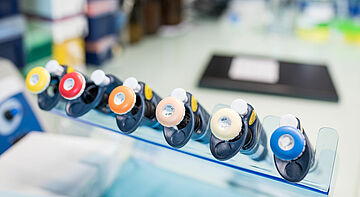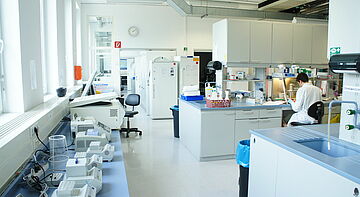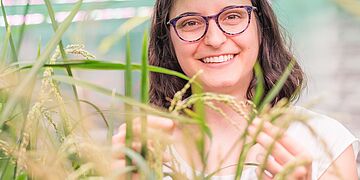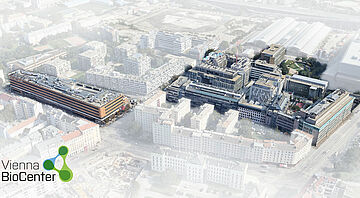In the course of the current COVID-19 pandemic, it is becoming increasingly evident how basic biomedical research can produce solutions to social challenges: at the Vienna BioCenter, researchers have been pooling their expertise since spring and set themselves the clear goal of improving technologies for nucleic acid detection and developing test protocols for the novel coronavirus. The result is now available: RT-LAMP represents a fast, simple and inexpensive alternative to the "gold standard" PCR test. The protocol was developed by a cross-institutional team from the Institute of Molecular Biotechnology (IMBA) of the Austrian Academy of Sciences (ÖAW) together with the Research Institute of Molecular Pathology (IMP): Max Kellner, Julian Ross, Dominik Handler, Martin Matl, and Jakob Schnabl, under the supervision of IMBA’s Julius Brennecke and IMP’s Andrea Pauli.
RT-LAMP: A fast, cheap and simple test procedure
The method is based on a technology called RT-LAMP or "loop-mediated isothermal amplification". RT-LAMP is an established technique to detect viruses and other pathogens but has so far been less reliable in sensitivity and robustness when compared to the classical PCR test.
"Our achievement is the refinement of the method and our optimized protocol, which increases both sensitivity and robustness, and makes it extremely easy to use," says Andrea Pauli. In the classic PCR test, the viral genetic material is first copied into DNA and then duplicated numerous times. A rather expensive device is required for the entire process and to visualize the duplication of the DNA. With the RT-LAMP method, however, an incubator or a simple water bath with a constant temperature of 63 degrees Celsius is sufficient. After thirty minutes, a positive result is recognizable even by laypersons via a simple color change in the sample.
"This simple and fast method would, for example, allow small test stations to be set up all over the country. Especially for areas with a disadvantaged infrastructure, but also for developing countries, this is a way to create test capacities quickly and economically," Julius Brennecke explains. Another advantage of the method is that all the reagents required can be easily obtained and are not subject to patents. Interested parties can find concrete information on how to perform RT-LAMP tests on www.rtlamp.org.
Free training courses for laboratory staff
"Thanks to the revision of the LAMP method by the experts at the Vienna BioCenter, even small laboratories now have access to an absolutely practical, inexpensive and certain analysis for the detection of SARS-CoV-2 infections," emphasised Franz Allerberger, Head of Public Health at AGES. The test protocol is already established in the routine of AGES analyses. Together with the team at the Vienna BioCenter, comparative tests of RT-LAMP with PCR standard analysis have already been performed and pilot projects for hospitals in selected regions have started.
A detailed protocol, list of materials and equipment, as well as instructional videos are available on a dedicated website (rtlamp.org). At the Institute for Medical Microbiology and Hygiene of the AGES as well as at the Vienna BioCenter, training courses for laboratory staff are offered free of charge. The LAMP method has successfully completed its scientific testing, so that "Analytics 'Made in Austria' are making an important contribution to the fight against the pandemic", said Allerberger.
More information about LAMP
Instructions, explanatory videos and material lists: www.rtlamp.org
Austrian Agency for Health and Food Safety (AGES): www.ages.at



